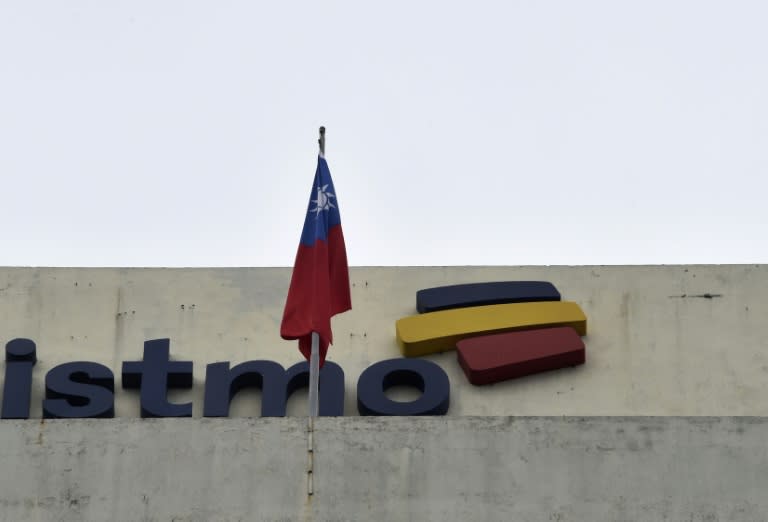Could more Central American countries follow Panama in ditching Taiwan?
Panama's diplomatic abandonment of Taiwan to start ties with China could ripple through other countries in Central America and the Caribbean that still support Taipei, experts say, reflecting Beijing's growing economic might. "I think Dominican Republic and Nicaragua will soon follow," Mexico's former ambassador to China, Jorge Guajardo, tweeted soon after the joint Panama-China statement. He also held out the possibility of the Vatican following suit. Up to 2007 all Central American countries officially recognized Taiwan as the legitimate government of China. But then Costa Rica switched allegiance, breaking with Taipei to forge bonds with Beijing. Beijing still sees Taiwan as part of its territory waiting to be reunified since 1949, while the democratic island views itself as a sovereign country, although it has never declared independence. With Panama's decision, there are now five Central American countries left giving crucial support and international legitimacy to Taiwan. With those in the Caribbean, the total number of nations is 11 -- or just over half the 20 governments in the world that back Taiwan, according to Margaret Myers, director of the China and Latin America program at the Inter-American Dialogue think tank in Washington. "Latin America is still a stronghold for Taiwan," she said. "But the numbers are dwindling and it seems that many countries are coming to the conclusion that strong ties with Beijing in order to attract investments and improve trade ties, is perhaps in their best interest." - Nicaragua next? - In Panama's case it was an unavoidable fact: China is the second most important Panama Canal customer after the United States. Last year it sent 38 million tonnes of cargo through the interoceanic waterway, accounting for 19 percent of traffic. The announcement of the diplomatic switch-up also came a week after China started building a container port, with natural gas installations, in Panama's province of Colon, on the Atlantic side of the canal. Who might switch sides next? "Nicaragua is a likely contender," said Myers. That country is holding out the most ambitious project in Latin America: the construction of a canal to rival Panama's canal, financed by Chinese capital. But the plan has yet to see any real on-the-ground progress, and Myers noted that it was backed not by the Chinese government but by a private group, Hong Kong Nicaragua Canal Development (HKND). It is also the focus of persistent protests within Nicaragua. However, generally "Nicaragua has been very inviting with Chinese investments," Myers said. "It wouldn't surprise me if we saw Nicaragua switching next." For Carlos Malamud, a specialist on the region for the Real Elcano institute in Spain, the tide has been turning against Taiwan for the past two decades. - 'Significant change' - China, he said, "has deftly played its cards in Latin America by saying it didn't want to compete with the United States for control of the region." The Asian giant's involvement in the region up to now has been in the form of economic projects, "without taking a strong position politically," he said. Having focused on Central America later than in South America, China has homed in on three sectors to invest in: energy, telecommunications, and infrastructure. But after shoring up its position, and possibly encouraged by its diplomatic success with Panama, Beijing could now start to flex its political muscle. The divorce between Panama and Taiwan "really signals a significant change," said Matt Ferchen, international politics professor at Tsinghua University in Beijing. "That really could signal a change and possible increase in the competition between PRC (China) and Taiwan," he said. Myers concurred that Taiwan would likely seek to step up its game. In Latin America, she said, "I think we'll see Taiwan strengthening ties with existing allies to prevent further changes in diplomatic affiliation."



